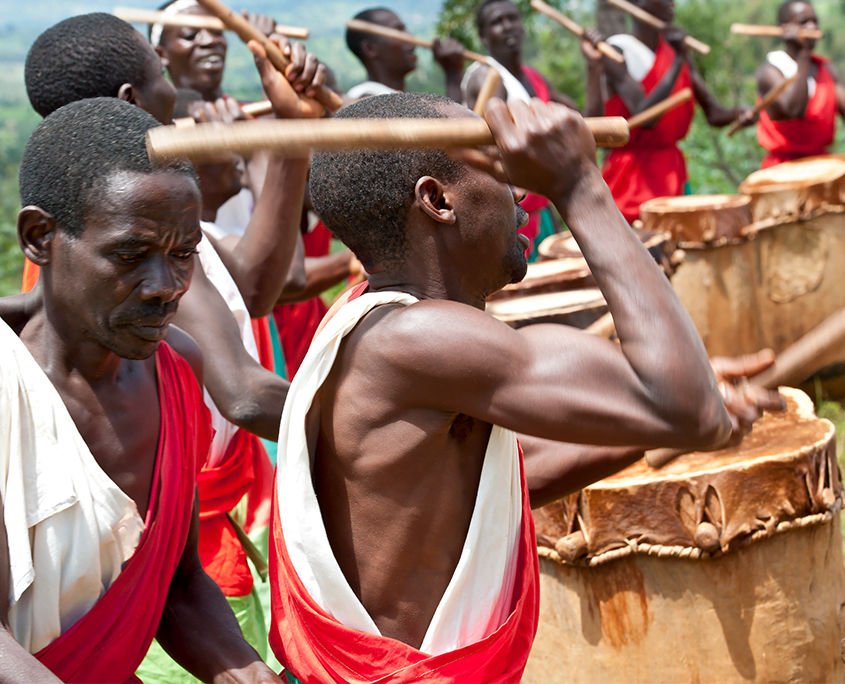Drummers and Dancers of Gitega in Burundi
Photo Credit: guenterguni/iStock/Getty Images
World Day for Cultural Diversity for Dialogue and Development
In December 2002, the UN General Assembly declared May 21st to be the World Day for Cultural Diversity for Dialogue and Development.
World Day for Cultural Diversity for Dialogue and Development provides us with an opportunity to deepen our understanding of the values of cultural diversity and to advance the four goals of the UNESCO Convention on the Protection and Promotion of the Diversity of Cultural Expressions adopted on 20 October 2005:
- Support sustainable systems of governance for culture
- Achieve a balanced flow of cultural goods and services and increase the mobility of artists and cultural professionals
- Integrate culture in sustainable development frameworks
- Promote human rights and fundamental freedoms
Our culture is what shapes us, it shapes our behaviour and our identity. Culture is our way of living, it refers to the shared language, beliefs, values, norms, behaviours, and material objects that are passed down from one generation to the next.
The term “culturally diverse” is often used interchangeably with the concept of “multiculturalism.”
Sociologist Dr. Caleb Rosado, who specializes in diversity and multiculturalism, described seven important actions involved in the definition of multiculturalism:
- recognition of the abundant diversity of cultures;
- respect for differences;
- acknowledging the validity of different cultural expressions and contributions;
- valuing what other cultures offer;
- encouraging the contribution of diverse groups;
- empowering people to strengthen themselves and others to achieve their maximum potential by being critical of their own biases; and
celebrating rather than just tolerating differences to bring about unity through diversity
Human beings are extremely diverse in so many ways. We differ in opinions, religion, lifestyle, race, gender and so much more. With the onset of technology, the interaction between people has made it common for people to shield themselves and hinder interaction with others outside those groups.
Sadly, there has been an unending history of humans showing discrimination against each other based on cultural differences. This discrimination can cause; isolation and exclusion of specific groups of people, anger, and urges to retaliate, anxiety and fear of being attacked verbally or physically, reduced self-confidence, self-worth, and impact on identity development.
We should, however, notice that cultural diversity is important in that it helps to understand different perspectives about the world that we live in. It helps dispel negative stereotypes and personal biases about different groups. Bridging the gap between cultures is urgent and necessary for peace, stability, and development.
Cultural diversity is a driving force of development, not only concerning economic growth but also as a means of leading a more fulfilling intellectual, emotional, moral, and spiritual life. Cultural diversity is thus an asset that is indispensable for poverty reduction and the achievement of sustainable development.
At the same time, acceptance and recognition of cultural diversity – in particular through innovative use of media and Information and Communications Technologies (ICTs) – are conducive to dialogue among civilizations and cultures, respect, and mutual understanding.
Ten simple things you can do to celebrate World Day for Cultural Diversity for Dialogue and Development
- Visit an art exhibit or a museum dedicated to different cultures
- Invite a family or people in the neighborhood from another culture to share a meal with you and exchange views on life
- Rent a movie or read a book from another country
- Invite people from a different culture to share your customs.
- Read about the great thinkers of other cultures than yours (e.g. Confucius, Socrates, Avicenna, Ibn Khaldun, Aristotle, Ganesh, Rumi)
- Learn about traditional celebrations from other cultures; learn more about Hanukkah or Ramadan or amazing celebrations of New Year’s Eve in Spain or Qingming festival in China
- Spread your own culture around the world through your social media page and let others know more.
- Explore the music of a different culture
- Learn another language
- Plan an international movie night



